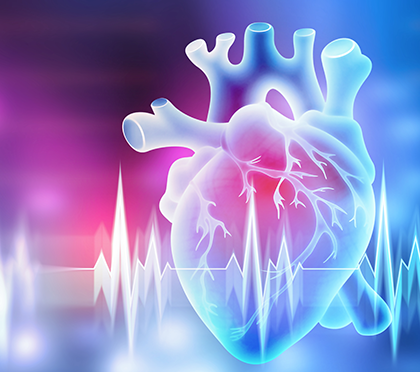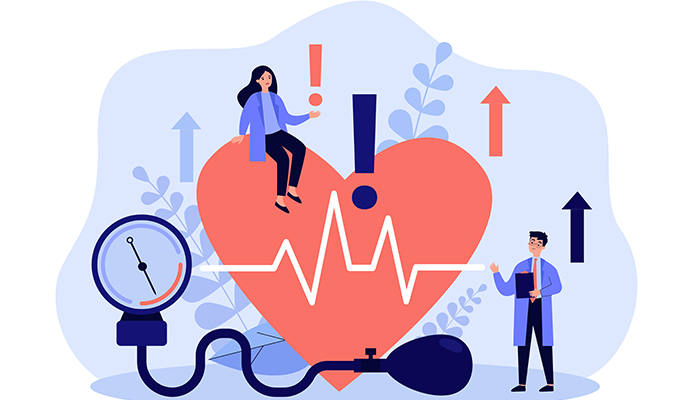How Cardiology care shields your cardiovascular health long-term
How Cardiology care shields your cardiovascular health long-term
Blog Article
Recognizing the Significance of Cardiology in Modern Healthcare Providers
Cardiology plays a critical duty in modern healthcare, specifically as heart disease proceeds to be the leading cause of mortality worldwide. Advances in diagnostics and treatment have changed person care, making it possible for earlier interventions and boosted results. The shift in the direction of preventive cardiology equips people to handle their wellness proactively. As technology continues to advance, the combination of ingenious options may better redefine cardiology's effect on public health, motivating a closer evaluation of emerging fads and their effects.
The Occurrence of Heart Illness and Its Effect On Public Health
Heart condition continues to be the leading reason of death around the world, its effect expands far past private patients to impact public wellness systems and economic climates. The high occurrence of heart illness positions a significant pressure on medical care sources, requiring boosted financing for treatment, rehab, and avoidance programs. Public health efforts need to attend to threat variables such as obesity, cigarette smoking, and inactive lifestyles, which add significantly to the rising incidence of heart conditions.Moreover, the financial problem connected with cardiovascular disease is immense, including not just direct clinical expenses however likewise indirect costs connected to shed efficiency and premature mortality. Communities face difficulties in handling these expenses, frequently leading to variations in healthcare gain access to and end results. As the population ages and lifestyle-related dangers remain to escalate, the urgency for efficient cardiology interventions ends up being critical. Attending to heart disease is not just an issue of specific health and wellness however additionally an essential public wellness top priority.
Advances in Cardiac Diagnostics and Imaging Techniques
Recent improvements in heart diagnostics and imaging methods have transformed the area of cardiology, boosting the capacity to keep an eye on and spot heart diseases. Techniques such as cardiac MRI, CT angiography, and echocardiography have become progressively advanced, giving comprehensive photos of cardiac frameworks and features. These modalities permit for the early recognition of conditions like coronary artery illness, heart failing, and valvular disorders.Moreover, innovations in non-invasive diagnostics, such as wearable modern technology and remote surveillance devices, have equipped patients and health care suppliers. These tools facilitate real-time tracking of heart rhythms and other essential indicators, leading to timely interventions. Additionally, expert system is being integrated right into imaging analysis, boosting precision and performance in diagnosis.
Technologies in Treatment Choices for Heart Issues
Current innovations in cardiology have actually resulted in significant technologies in therapy options for heart conditions. These include sophisticated medical methods that enhance procedural end results and arising drugs that use brand-new avenues for treatment. As the field evolves, these innovations play an essential function in enhancing patient care and end results.
Advanced Surgical Techniques
Advancements in surgical strategies have transformed the landscape of cardiology, supplying new expect people with heart disease. Minimally intrusive treatments, such as catheter-based interventions, have actually significantly reduced recovery times and healthcare facility stays. Techniques like robotic-assisted surgical procedure improve precision, permitting specialists to browse complicated physiological frameworks with higher accuracy. Improvements in imaging technology promote real-time visualization during procedures, boosting outcomes. Transcatheter aortic shutoff replacement (TAVR) exemplifies a breakthrough in dealing with aortic constriction, making it possible for valve replacement without open-heart surgery. Furthermore, hybrid methods that combine surgical and catheter-based techniques offer customized solutions for various cardiac concerns. These advanced surgical methods not only boost patient security however likewise broaden therapy choices, underscoring the vital duty of innovation in modern cardiology methods.
Emerging Medications and Treatments
As the landscape of cardiology remains to advance, arising therapies and drugs play an essential function in enhancing treatment options for heart problems. Technologies such as novel anticoagulants and progressed lipid-lowering representatives have actually transformed the monitoring of cardio conditions, considerably reducing individual morbidity and mortality. In addition, the advancement of genetics therapies and regenerative medication supplies encouraging methods for treating problems previously regarded irreversible. Scientific trials are continually disclosing the efficiency of these therapies, pressing the borders of standard therapies. The combination of digital wellness technologies assists in tailored medication, allowing for tailored treatment plans based on hereditary and way of life factors. Collectively, these advancements emphasize the vibrant nature of cardiology, enhancing person end results and redefining criteria of treatment in contemporary health care.
The Role of Preventive Cardiology in Patient Care
Preventive cardiology plays an important duty in patient care by concentrating on the identification of threat variables that add to cardiovascular disease. With way of living alteration methods and very early discovery strategies, healthcare service providers can efficiently minimize the occurrence of cardiovascular occasions - Cardiology Jupiter. This positive technique not just improves person results but also advertises lasting wellness
Threat Factor Recognition
While cardiovascular diseases continue to be a leading source of morbidity and death worldwide, efficient threat aspect identification acts as a keystone of precautionary cardiology. Identifying danger factors such as high blood pressure, hyperlipidemia, family, and diabetes mellitus history is crucial for very early treatment. Healthcare experts use various screening methods to review these factors, permitting customized safety nets. In addition, comprehending a patient's lifestyle choices, such as smoking and physical inactivity, further educates danger analyses. This detailed analysis allows clinicians to establish individualized care plans focused on mitigating dangers. By prioritizing risk factor recognition, health care systems can enhance person results and reduce the overall worry of heart diseases, eventually adding to boosted public wellness methods and resource allocation.
Lifestyle Adjustment Methods
A wide range of researches highlights the important duty of lifestyle adjustment strategies in minimizing cardio illness threat. These techniques include dietary changes, enhanced exercise, smoking cessation, and weight monitoring. By adopting a heart-healthy diet regimen abundant in fruits, vegetables, entire grains, and lean proteins, individuals can decrease cholesterol degrees and high blood pressure. Regular exercise strengthens the heart and improves general cardio health and wellness. Furthermore, stopping cigarette smoking substantially reduces the danger of heart problem and improves recuperation prices for those with status quo. Weight monitoring additionally adds to cardiovascular wellness by alleviating various other threat elements such as diabetes and high blood pressure. Applying these way of life alters not just advertises private health yet also functions as a cornerstone of preventive cardiology in individual treatment.
Early Discovery Methods
Lifestyle adjustments considerably add to reducing heart disease dangers, however they are most reliable when coupled with early discovery strategies. Preventive cardiology stresses the relevance of recognizing prospective heart issues before they rise into serious conditions. Methods such as blood stress monitoring, cholesterol screening, and progressed imaging modern technologies like echocardiograms play important duties in assessing cardiovascular wellness. Biomarkers and genetic screening also boost the accuracy of very early discovery, enabling for tailored precautionary techniques. Normal heart threat evaluations encourage healthcare companies to intervene proactively, potentially avoiding cardiac arrest and strokes (Cardiology Jupiter). By incorporating these early discovery methods right into regular care, clients can gain from timely way of living treatments and targeted therapies, ultimately improving end results and boosting high quality of life
Integrating Technology Into Cardiology Practices
As developments in modern technology remain to improve various fields, the integration of innovative tools and systems into cardiology techniques has come to be essential for boosting client care and outcomes. Telemedicine systems permit cardiologists to monitor individuals remotely, improving access to care while minimizing the worry on medical care centers. Wearable tools, such as smartwatches, enable continuous heart price monitoring, signaling both individuals and anchor medical professionals to possible concerns in real-time. In addition, expert system (AI) is being utilized to examine huge quantities of cardiac information, aiding in early diagnosis and tailored therapy strategies. Advanced imaging strategies, consisting of 3D echocardiography, improve visualization of heart frameworks, resulting in more precise treatments. Digital health and wellness records (EHRs) streamline client info administration, guaranteeing that cardiologists have instant accessibility to critical information. Together, these technical developments are transforming cardiology, advertising proactive management and boosted wellness outcomes for clients with cardiovascular problems.
The Significance of Client Education And Learning and Interaction
Patient education and interaction play an essential duty in the management of cardio health. By gearing up patients with understanding about their problems, treatment alternatives, and lifestyle adjustments, healthcare suppliers empower people to take an active duty in their treatment. This proactive method can bring about improved adherence to recommended medicines, dietary modifications, and workout programs, inevitably minimizing the threat of complications.Engagement additionally promotes a solid patient-provider partnership, motivating open interaction and trust fund. When clients feel informed and involved, they are more probable to voice issues and ask questions, which can lead to far better professional outcomes. Furthermore, academic sources, such as workshops or digital platforms, can enhance understanding and promote self-management strategies. In general, prioritizing client education and learning and engagement is essential for enhancing cardio health and wellness, enhancing lifestyle, and decreasing medical care prices linked with cardiovascular diseases.
Future Patterns in Cardiology and Their Potential Effect

Regularly Asked Questions
What Way Of Life Modifications Can Reduce Heart Problem Threat?
The existing question addresses way of living modifications that can substantially minimize heart problem risk. Cardiology care. Embracing a balanced diet plan, involving in regular exercise, maintaining a healthy weight, taking care of stress and anxiety, and staying clear of tobacco can especially enhance cardiovascular wellness
How Can I Recognize Early Indications of Heart Issues?
Identifying early indications of heart issues includes tracking signs and symptoms such as upper body pain, lack of breath, tiredness, and uneven heartbeat. Prompt awareness of these indications can prompt essential clinical assessment and intervention for much better end results.
What Are the Distinctions In Between Cardiologists and Heart Surgeons?
The distinctions between cardiologists and heart surgeons hinge on their duties; cardiologists primarily detect and handle heart disease through non-invasive approaches, while cardiac surgeons execute surgeries to remedy architectural heart issues. Each plays an important, distinctive duty.

How Often Should I Get My Heart Health And Wellness Checked?
The frequency of heart medical examination differs based on private danger factors. Generally, grownups need to undergo examinations each to two years, while those with existing conditions might need even more regular evaluations as advised by medical care professionals.
What Role Does Genes Play in Heart Illness Danger?
Genetics substantially affects heart problem danger, with familial patterns showing acquired problems. Details genetics can incline individuals to high blood pressure, cholesterol concerns, and various other cardio problems, highlighting the value of hereditary testing in assessing heart wellness. Heart illness stays the leading reason of death globally, its Look At This influence expands far past individual clients to affect public wellness systems and economic situations. Public wellness campaigns need to attend to danger aspects such as obesity, smoking, and inactive lifestyles, which contribute greatly to the rising incidence of heart conditions.Moreover, the financial concern linked with heart disease is enormous, encompassing not only straight clinical expenses yet also indirect costs related to shed efficiency and early mortality. Preventative cardiology plays a necessary duty in client treatment by focusing on the identification of risk elements that add to heart condition. see here now Fabricated intelligence (AI) and machine discovering are boosting diagnostics and patient monitoring, allowing early detection of heart illness. The differences between cardiologists and cardiac specialists exist in their functions; cardiologists mostly diagnose and manage heart conditions through non-invasive approaches, while cardiac specialists do surgical treatments to remedy architectural heart problems.
Report this page